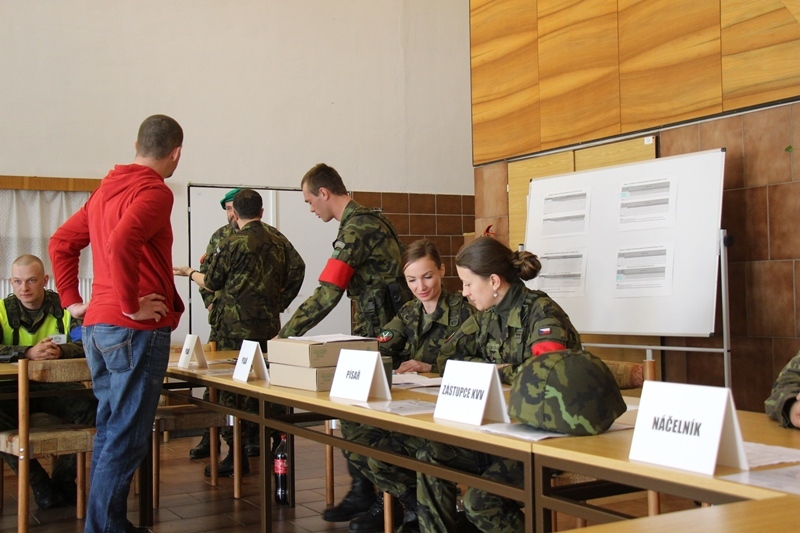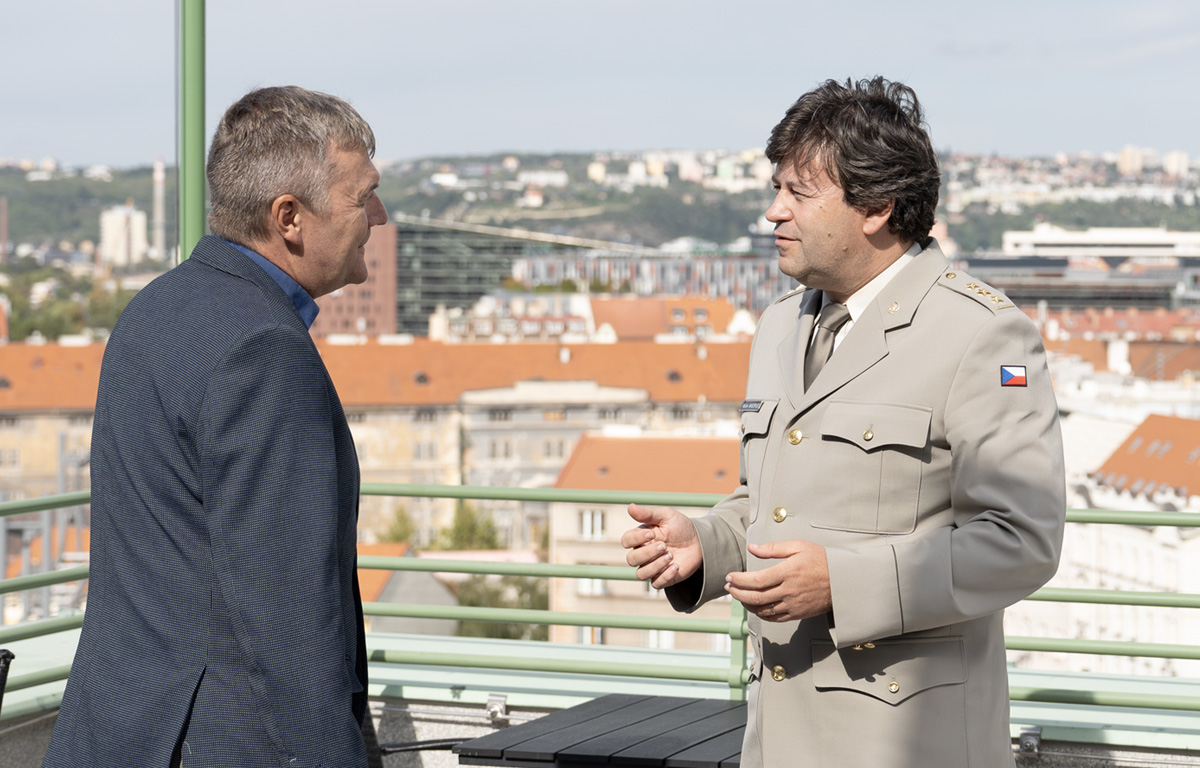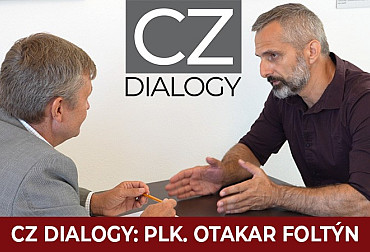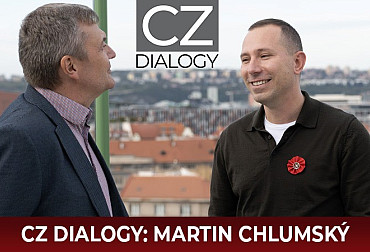Colonel Václav Masopust: The new decree on medical fitness is a revolutionary change that has never been seen before
The Central Military Hospital - Military University Hospital Prague (ÚVN) is a key medical facility established in Prague by the Ministry of Defence of the Czech Republic. Currently, there are three military hospitals: the ÚVN in Prague and additional military hospitals in Brno and Olomouc. In addition to these institutions, there is the Institute of Aviation Medicine, which focuses on aviation-specific medical procedures. Colonel Václav Masopust, M.D., Ph.D., MBA, LL.M., DBA, assumed leadership at the beginning of July, and we are excited to present an engaging interview with him in the upcoming installment of our CZ DIALOGUES discussion program.
Video: Interview with the Director of the Central Military Hospital Col. MUDr. Václavem Masopustem / CZ DEFENCE
Although the Institute includes "military" in its name, 90% of its services are intended for the civilian population. "We try to ensure that the disciplines align with military needs, but this doesn’t affect the care itself. You can’t perform surgeries without follow-up care and rehabilitation, and you must have long-term care beds; otherwise, the entire treatment process gets stalled. So, you need a complete structure," says Masopust, the director of the Institute of Health Care, at the beginning of the interview.
Practicing a full range of medical disciplines is crucial training for military physicians. "A military surgeon needs to be adaptable and skilled in basic procedures, able to manage trauma cases, but also trained in a variety of additional procedures. However, we face the challenge of super-specialization. Today, you have specialists in very specific areas—like the right knee, for example. The level of specialization is so high that even in core fields, not every physician does everything. But in crisis situations—whether war, floods, earthquakes, or mass injuries—you need specialists who can handle a wide range of medical issues, and such professionals are increasingly rare," adds Colonel Masopust, noting that while this trend is natural, military medicine requires more comprehensive skills and solutions, prioritizing a broader specialization.
Colonel Václav Masopust is also the chairman of the Council of Chief Experts in the Military Medical Service within the Society of Military Medicine. This organization, composed of experts from various fields, holds great significance for military medicine. "Today, we have forty experts involved. We are able to provide insights on almost any medical issue. This is incredibly important because, whether assessing a soldier’s fitness for duty or addressing injuries, we have experts on hand. Now, as we develop a new decree on medical fitness for active military service, having as many experts as possible contribute is crucial to avoid errors. It’s invaluable to have such a team available at any time," says Colonel Masopust, director of the Institute of Military Medicine.
In the interview, we also learned that recruitment processes are currently being digitalized. "By the end of the year, I hope to have recruitment points directly connected to our review board experts, so they can receive real-time information on medical evaluations," Colonel Masopust explains. Another change involves a new psychology program that will also be entirely online.
The most significant change in the Institute's operations is the new decree on medical fitness for active military service. "We are all waiting to see what will happen when it comes into effect. This change is revolutionary and unprecedented. Previously, we had only two categories: fit and unfit. Now, there are five categories that assess how capable a person is and any limitations they might have. We no longer simply declare someone as fully capable or incapable; instead, we acknowledge varying degrees of ability and limitations," explains the director of the Institute of Health Care.
This updated system of medical evaluations aims to maximize the use of individuals’ abilities, allowing those with skills to serve in the army despite certain health issues. "The army requires a range of specialists, such as lawyers, engineers, and computer experts, where certain types of disabilities do not hinder performance," added Colonel Masopust. Additionally, it is increasingly necessary to consider the prevalence of modern, widespread health conditions. According to Václav Masopust, it is regrettable to exclude interested candidates from military service due to these common health challenges.

The Central Military Hospital is set to undergo further changes, including the expansion of several specialties. "Some specialties have been in decline. For example, we didn’t have inpatient dermatology. Now, we’re working to establish it because, although we don’t treat burn patients directly, dermatology is closely related. It’s crucial to be prepared for scenarios involving weapons of mass destruction or chemical attacks, which we can never entirely rule out. We also want to develop our infectious disease capabilities, as biological threats are a concern we must address. This expansion benefits the civilian population as well, by allowing us to treat a broader range of diseases," explains Masopust, the director of the Institute of Medical Care. "We would like to further develop reconstructive surgery as well." Currently, reconstructive surgery at the ÚVN (Central Military Hospital) operates within the ENT and orthopedic clinics, where specialists focus on facial and orthopedic procedures. In the future, reconstructive surgery will become an independent department within the hospital.
A crucial part of the Central Military Hospital’s mission is the training of military doctors, who must be prepared to operate in emergency field conditions. "We train them to handle more than just surgery or internal medicine—they may find themselves in combat conditions. We adhere to an annual training schedule, focusing on field exercises and physical fitness, as the reality is that a red cross on a hospital no longer guarantees protection," says Colonel Václav Masopust. Consequently, military doctors undergo drills in marksmanship and other essential skills to equip them for combat conditions. To support this training, the Combat Medicine Centre was recently established, dividing training into simulations and field exercises. The simulation center’s advanced equipment creates near-realistic scenarios that doctors may encounter in the field. Mannequins, designed for a range of medical simulations, play a critical role in this training. "In the future, we aim to add virtual reality to the center," says Masopust. This technology would not only simulate environments but also introduce stress-inducing scenarios, helping doctors practice under pressure and minimize errors. Military personnel must rehearse not only the process of treating the wounded but also the entire battlefield evacuation system, which includes transporting patients from the front lines to a secure location and eventually to a safe medical zone. "Response time is crucial, and there’s a difference between quickly airlifting a casualty and using makeshift means for evacuation," explains the director of the IVN in an interview.

Among military doctors, the term "golden hour" remains central. For over 30 years, this concept has represented the critical window for stabilizing patients with severe trauma, based on the understanding that a healthy body can manage the strain of severe injury for roughly 60 minutes, during which emergency teams must transport the patient for definitive care. In recent years, the "platinum quarter hour" has also emerged, symbolizing the need for the most urgent pre-hospital interventions to ensure recovery of vital functions. These timeframes, however, were initially based more on expert estimation than data. "The golden hour is a powerful term that remains in use, but it doesn’t always apply to our settings. Time is a major factor. For instance, in cases of intracranial bleeding, if treated within two hours, survival chances are about 80%. After four hours, survival drops to 20% because increasing brain pressure leads to irreversible damage," says Colonel Masopust. One potential solution in such cases is remote connectivity to base hospitals. "With technologies like 5G, it’s possible to connect remotely with doctors thousands of kilometers away, enabling real-time consultation and guidance. We’re working on developing this support to bring treatment as close to the battlefield as possible," says Colonel Václav Masopust, director of the Central Military Hospital, in an interview on the CZ DIALOGY talk show. The full interview is available at the beginning of this article.





















